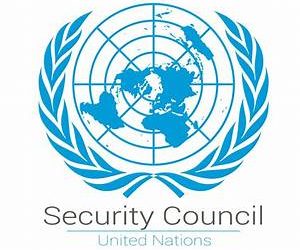Donald Trump’s campaign to become the next President of the United States, to state the obvious, has been divisive. Reflecting the larger American electorate, those divisions are also apparent within the Indian-American community, especially among Hindus. Though he may have divided them, this is a group Trump is far from being able to conquer, but certainly one he’s left confused.
There are elements within the community that believe Trump has the potential to move the dial when it comes to Hindus in America. The group ‘Indian-Americans for Donald Trump 2016’ is among them. AD Amar, a professor of business at Seton Hall University in New Jersey, is president of this outfit, and he is confident Trump will attract more Indian-American votes than previous Republican candidates like John McCain in 2008 or Mitt Romney in 2012 did: “In 2008, because of Obama, the percentage of Indian-American support (for Republicans) was 18. A recent survey showed it at 22 percent. Our estimate is 30 percent. My personal belief is I am comfortable with 30 percent.”
Trump’s sharp and harsh rhetoric against Islamic terrorism and for a ban on immigration from Muslim nations may have won him some support. Photo: Facebook/Hindus For Trump
A majority of Hindu Americans (among them many supporters of Indian Prime Minister Narendra Modi) had been traditionally opposed to the Republican Party due to its pandering to the Evangelical Christian lobby in America. This year, Trump’s sharp and harsh rhetoric against Islamic terrorism and for a ban on immigration from Muslim nations may have won him some support. However, such support isn’t stated in public but circulates on WhatsApp and social media. A New Jersey-based community leader believes an increase in support of between 15 and 20 percent is possible. He did not speak on the record since he is an office-bearer of a non-profit, one affiliated to the RSS. His personal opinion of Trump: “He doesn’t have the temperament. This guy is a screwball.”
In fact, the establishment within the RSS, and BJP’s diaspora fronts, view Trump negatively; in a sense reflecting the concerns arising out of New Delhi that Trump’s unpredictability may scorch India if he makes it to the White House.
But there are others like the Republican Hindu Coalition that are unabashedly pro-Trump. Its founder and chair, Chicago-based businessman Shalabh Kumar, handed over a campaign contribution cheque of nearly $1 million personally to ‘The Donald’. But schisms remain, and even many Hindu Republicans have shied away from openly endorsing Trump. In fact, among them, New Jersey-based physician Sudhir Parikh, who also owns a chain of desi publications, was to chair the fund-raising component of Indian-Americans for Trump, but “parted amicably” from that group and now no longer formally supports the New York businessman.
While pujas in Delhi or being featured like a deity on Twitter, may have received extensive coverage, the vast majority of Hindu Americans remain poised to vote against Trump.
The truth is that like many minorities in America, Hindus find themselves far more comfortable with the Democrats. The community has found its champion in Tulsi Gabbard, the Hawaii Congresswoman, who just won her primary with nearly 85 percent of the vote. And while she was the first Hindu to be elected to the House of Representatives, as many as three more could join her when the new Congress is sworn in next January. All of them are Democrats — Pramila Jayapal in Washington State, Raja Krishnamoorthi in Illinois and Ro Khanna in California.
The population of Hindus in America is nearly 2.5 million, but it punches above its weight. Groups like the Hindu American Political Action Committee are trying to ensure that it attains more muscle while lobbying in Washington. The bipartisan PAC has become active during this election cycle and while it has stayed out of the Presidential race, it has focused on Congressional candidates, whether Hindus or not, who will pay attention to the community’s concerns, according to its chair Mihir Meghani, a California-based doctor.
Speaking in his personal capacity, Meghani expressed the usual worry over Trump’s rhetoric: “Many are concerned about some statements from the Trump campaign, that he doesn’t have a particular track record. Hillary Clinton has also not reached out the way (Barack) Obama did. He showed pretty good sensitivity; the way he mentioned Hindus at his inaugural event (in January 2009). He set a pretty good bar for future candidates.”
That may be a bar too high for Trump when it comes to making major inroads into the Hindu American vote. On Election Day, 8 November, he will have overachieved if he captures a quarter of the community’s votes. He is not quite its idol.






0 Comments